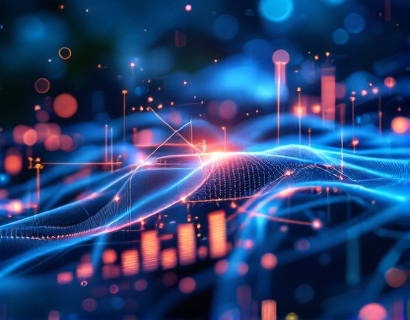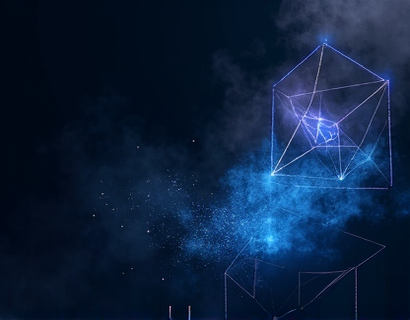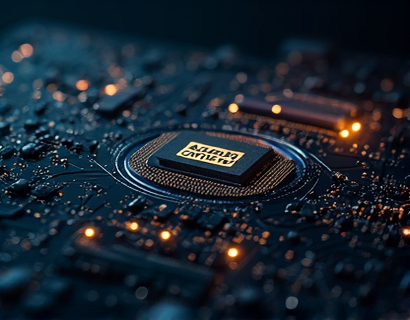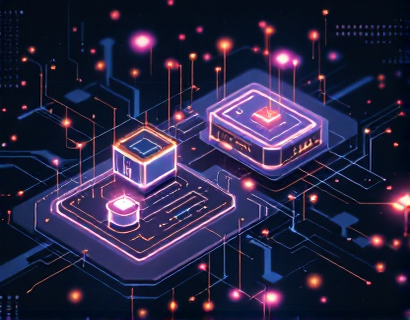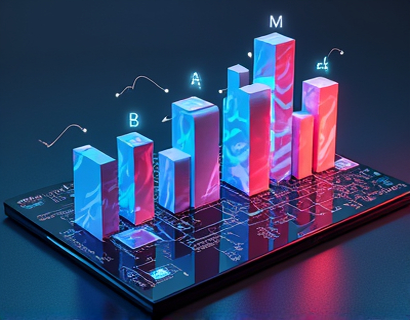Blockchain Oracle Management: Streamlining Data Integration and Smart Contract Execution for Decentralized Applications
In the rapidly evolving landscape of blockchain technology, the role of oracles emerges as a critical component for connecting decentralized applications (DApps) with external data sources. Oracles serve as bridges, providing real-time data and enabling smart contracts to interact with the off-chain world. However, managing these oracles efficiently remains a challenge for developers and businesses aiming to harness the full potential of blockchain. This article delves into transformative software solutions that revolutionize oracle management, focusing on streamlining data integration and enhancing smart contract execution. By optimizing these processes, the platform ensures secure and reliable interactions within DApps, unlocking the full potential of blockchain technology through advanced management and seamless service access.
Understanding Oracle Management in Blockchain
Oracle management in blockchain involves the process of integrating external data into smart contracts. These external data sources can include APIs, databases, IoT devices, and more. The primary function of an oracle is to fetch data from these sources and relay it back to the blockchain, allowing smart contracts to make informed decisions based on real-world conditions. However, this process is fraught with challenges such as data latency, security risks, and the need for high availability. Effective oracle management addresses these issues by providing robust mechanisms for data validation, secure communication, and efficient data handling.
Challenges in Traditional Oracle Management
Traditional oracle solutions often struggle with several key issues. Data latency is a significant concern, as delays in data retrieval can render smart contracts ineffective in time-sensitive applications. For instance, in decentralized finance (DeFi) platforms, delayed data can lead to missed opportunities or financial losses. Security is another critical aspect, as oracles act as single points of failure. If compromised, they can introduce vulnerabilities that threaten the entire DApp ecosystem. Additionally, the lack of standardization in oracle protocols makes integration complex and costly for developers. These challenges necessitate innovative solutions that can address data integrity, security, and efficiency.
Transformative Software Solutions for Oracle Management
To overcome the limitations of traditional oracle management, advanced software solutions have emerged. These platforms leverage cutting-edge technologies such as machine learning, distributed systems, and cryptographic protocols to create a more reliable and efficient oracle ecosystem. One such solution is a decentralized oracle network that aggregates data from multiple sources, ensuring redundancy and reducing the risk of data manipulation. By distributing the oracle function across a network of nodes, the platform enhances data accuracy and availability.
Another key feature of these solutions is real-time data processing. Utilizing stream processing techniques, the platform can handle high volumes of data with minimal latency. This ensures that smart contracts have access to the most up-to-date information, enabling them to respond promptly to changing conditions. For example, in supply chain management, real-time data on inventory levels can trigger automated smart contracts to initiate purchases or alerts, streamlining operations and reducing manual intervention.
Enhancing Data Integration
Effective data integration is crucial for the seamless operation of DApps. The transformative software solutions focus on creating a unified data layer that abstracts the complexities of multiple data sources. This abstraction layer allows developers to interact with various data providers using a standardized API, simplifying the integration process. By supporting multiple data formats and protocols, the platform ensures compatibility with a wide range of external systems.
Furthermore, these solutions incorporate data validation mechanisms to ensure the integrity of the information fed into smart contracts. Techniques such as cross-verification and anomaly detection help identify and filter out erroneous data, reducing the risk of smart contract failures. This validation process is essential for maintaining trust in the DApp ecosystem, as users rely on the accuracy and reliability of the data presented to them.
Securing Smart Contract Execution
Security is paramount in blockchain applications, and oracle management plays a vital role in this regard. The software solutions employ advanced cryptographic techniques to secure data transmission between the oracle and the smart contract. End-to-end encryption ensures that data remains confidential and tamper-proof during transit. Additionally, the use of multi-signature wallets and threshold cryptography adds layers of security, making it difficult for malicious actors to compromise the system.
To further enhance security, these platforms implement robust access control mechanisms. Developers can define fine-grained permissions for different data sources, ensuring that only authorized oracles can provide data to specific smart contracts. This granular control minimizes the attack surface and reduces the risk of unauthorized access. Regular audits and vulnerability assessments are also conducted to identify and mitigate potential security threats, ensuring the ongoing integrity of the oracle network.
Optimizing Smart Contract Performance
Smart contracts benefit significantly from optimized oracle management. By reducing data latency and ensuring high availability, the platform enables smart contracts to execute more efficiently. This optimization is particularly important for applications that require frequent data updates, such as decentralized exchanges (DEXs) and prediction markets. In these scenarios, timely data access is crucial for maintaining fair and competitive conditions.
Moreover, the software solutions leverage caching and batching techniques to minimize the load on the blockchain network. By caching frequently accessed data and batching multiple requests into a single transaction, the platform reduces gas costs and improves overall performance. This not only enhances the user experience but also makes blockchain-based applications more cost-effective and scalable.
Case Studies and Real-World Applications
To illustrate the practical benefits of advanced oracle management, consider a few real-world applications. In the realm of decentralized finance, a DeFi protocol using a decentralized oracle network can automatically execute trades based on real-time market data. This eliminates the need for intermediaries and reduces transaction costs, providing users with a more efficient and transparent trading experience.
In the Internet of Things (IoT) domain, oracles can aggregate data from numerous connected devices, enabling smart contracts to manage and automate complex processes. For example, a smart home system can use oracle data to adjust heating and cooling based on real-time weather forecasts, optimizing energy usage and enhancing comfort.
Another notable application is in the supply chain industry, where oracles can provide real-time tracking data for goods in transit. Smart contracts can trigger actions such as payment releases or inventory updates based on this data, streamlining operations and reducing manual errors. This level of integration and automation is transformative for businesses looking to enhance efficiency and transparency.
Future Trends and Innovations
The field of oracle management is continually evolving, with several promising trends on the horizon. One such trend is the integration of artificial intelligence (AI) and machine learning (ML) to predict and preprocess data before it reaches the smart contract. AI-driven oracles can anticipate data patterns and anomalies, further enhancing the accuracy and reliability of the information provided.
Another area of innovation is the development of cross-chain oracles, which enable data sharing and smart contract execution across different blockchain platforms. This interoperability is crucial for building a more connected and cohesive blockchain ecosystem, allowing for seamless interactions between diverse DApps and protocols.
Additionally, the rise of self-sovereign identity (SSI) and decentralized identity (DID) systems presents new opportunities for oracle management. By integrating SSI and DID with oracle networks, the platform can ensure secure and privacy-preserving data sharing, addressing concerns around data ownership and consent.
Conclusion
In conclusion, advanced software solutions for oracle management are revolutionizing the way blockchain applications interact with external data sources. By addressing key challenges such as data latency, security, and integration complexity, these platforms enable developers and businesses to build more reliable, efficient, and secure DApps. The future of blockchain technology hinges on the ability to seamlessly integrate and execute smart contracts based on real-world data, and transformative oracle management solutions are pivotal in achieving this goal. As the ecosystem continues to evolve, the adoption of these solutions will be essential for unlocking the full potential of decentralized applications.







